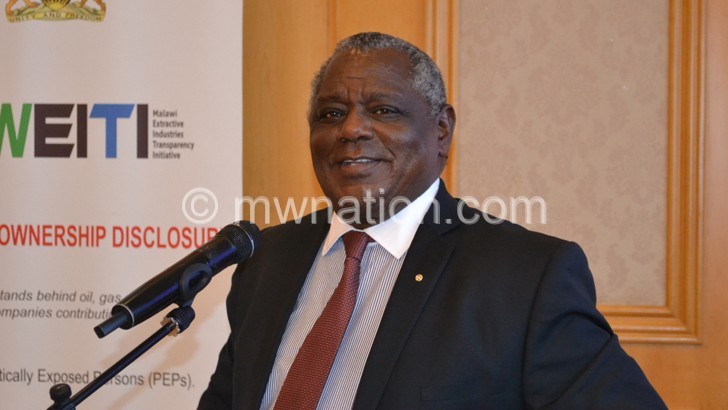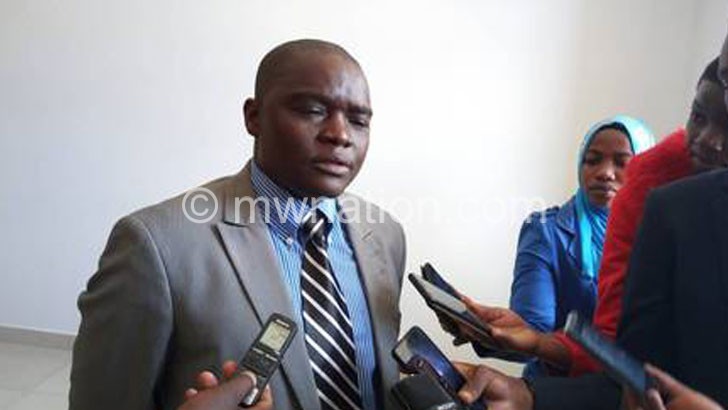House nods to Mines Amendment Bill
Parliament yesterday passed the long-awaited Mines and Minerals Amendment Bill with some members still expressing reservations about some of its contents.
The legislation seeks to regulate the development of mineral resources in the country through adherence to sustainable development principles and replaces the 1981 Mines and Minerals Act, which some experts say has failed to deal with emerging issues facing the sector.

Minister of Natural Resources Energy and Mining Aggrey Masi, who tabled the Bill urged members to pass the Bill which, he said, will, among others things, help policing of illegal mining taking place in some areas in the country.
But some opposition MPs felt that the new Act still has a number of shortfalls that need to be addressed and argued that it should be sent back for further refinement.

For instance, Kasungu West legislator Alex Major argued that the Mineral Resources Committee, which the Act seeks to establish, does not have representation from Parliament, civil society and business community.
Major, who spoke on behalf of Malawi Congress Party (MCP), gave an example of the pricing committee on fuel, which he said accommodates different stakeholders, adding that the absence of other key stakeholders is a big anomaly.
He also pointed out that there is no clear distinction between the newly-establishment office for commissioner of Mines in the new legislation and that of director of Mines.
Said Major: “Contract transparency is also not up to date; residents close to where mining activities are taking place do not have access to information about government monitoring of corporate compliance with the legislative and regulations.
Agreeing with Major, Karonga Central MP Frank Mwenifumbo pointed out the need to draw lessons from the betrayal by Paladin mining company.
He informed the House that in the Paladin deal there was a creation of an environmental bond of $10 million that in case of spillages the money should be used to repair the environment.
“Where is it?” he asked.
Speaker Richard Msowoya, however, curtailed debate, saying MPs had ample time to propose the amendments as they were furnished with the Bill in good time.
Said Msowoya: “We can make amendments, Parliament is there as a living body. You can always come in with an amendment of a clause even after two years.”
In an earlier interview Chamber of Mines chairperson Dean Lungu observed that there are huge expectations from the new Act and opines that the country needs to develop a proper mining culture.
“As a group of interested parties, we believe the Bill has taken on board all sticky issues that were not addressed in the old Act. Certainly, the Bill is good for the mining sector,” he explained.
“I think we are in a hurry. We are putting too much pressure on government and the investor. We need to slow down the expectation that mining will immediately change the economy.
“We have a huge potential, but it’s important that investors should be given a good environment to operate in,” he said.
A researcher with Tax Justice Network Africa, Rachel Etter-Phoya also argued that the Bill, while addressing many previous concerns, has many gaps which are a concern for governance of the sector.
In her analysis of the Bill, Etter-Phoya says the 1981 Bill is effectively being replaced by two separate proposed laws during the 2018 Parliamentary Session-an Amendment to the Taxation Act (already passed in 2016) and the new Mines and Minerals Bill.
One of the changes to the Act is that there is a committee made up of principal secretaries or delegated representatives from various government ministries and departments, including Mining (the chair), Water, Environment, Lands, Treasury, Parks and Wildlife, Economic Planning and Development, Geological Survey and Forestry, and the Inspector General (IG) of Police. na





